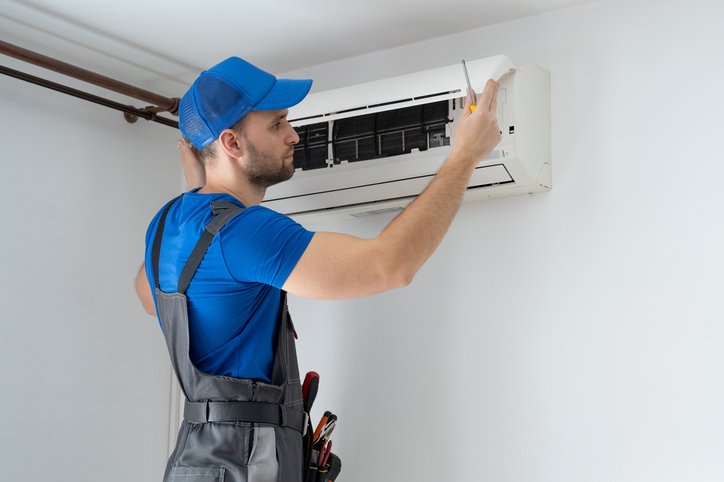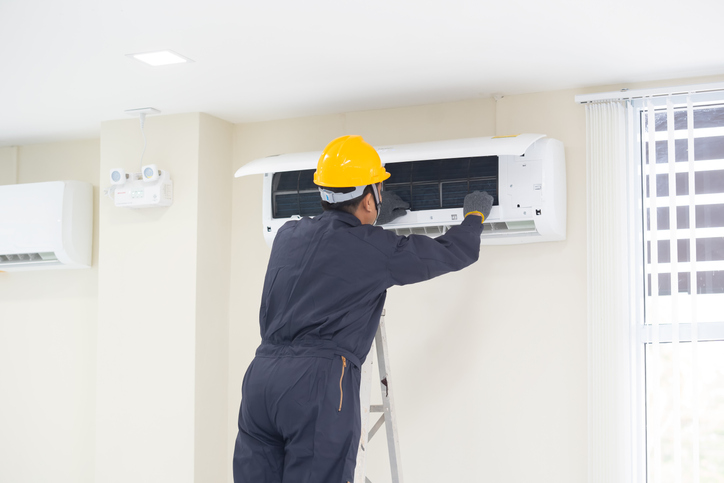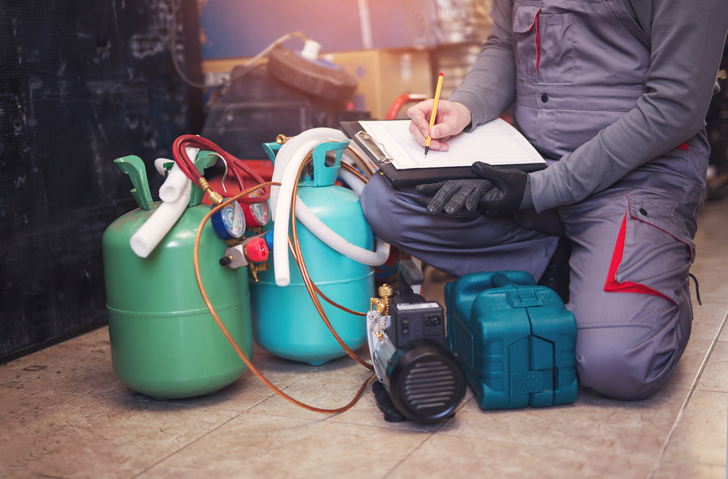
An HVAC Technician is a skilled professional that installs, repairs, and maintains, heating, ventilation, air conditioning, and refrigeration units. If you are considering becoming an HVAC Technician, there are certain safety principles you will need to know and remember. Once you start your career, you will find that you’ll be working with noxious gasses and electrical systems, and as such, you’ll need to remember safety protocols to avoid any harm. Read on for some safety practices you’ll want to remember throughout your training and career.
Wear PPE After HVAC Technician Training
As an HVAC Technician, you are likely to be exposed to noxious fumes, as well as other particles such as dust, debris, and chemicals which may cause harm. It is essential always to wear personal protective equipment (PPE) while you work. For instance, a respirator will help protect you against fumes, and safety goggles can help protect your eyes against any debris or harmful liquids. Other important PPE you may need as an HVAC Technician includes:
- Safety gloves
- A hard hat
- Non-slip shoes
- Earplugs
During your HVAC Technician Diploma program, you will learn the importance of protective gear, including how it should be worn and why it is needed in different scenarios. For example, wearing earplugs when working in a loud environment can help avoid damaging your hearing. Always wearing your safety gear on the job will help prevent you from suffering serious harm.

Be Cautious When Handling Chemicals
An important safety practice to always consider while working as an HVAC Technician is to be cautious with chemicals. You will be working with chemicals daily, and some, such as solvents and refrigerants, can be very harmful if not handled correctly. They may cause burns or in some severe cases, poisoning. During HVAC Technician training, you will be taught how to handle these chemicals safely.
Practical examples will be given and overseen by instructors, where you will need to dispose of, replace, and transport chemicals safely. This will be done using the knowledge of rules and regulations you learn during your training. For example, you’ll learn how to remove and store refrigerant chemicals safely.

Turn Off the Electricity While you Work
When working with units that have a water system or have general electrical issues, it is safer to turn off the main circuit breaker before starting work. Water is a conductor of electricity and can cause electrocution. Water leaking onto the unit you are working on may also be damaging to the unit, as it may cause a short circuit. This can be not only damaging for the unit but is a safety and fire hazard, as well. Additionally, it will be essential to analyze a unit before you begin working on it to see if there are any fluid leaks. This will help you better understand if you need to turn off the main circuit breaker.
The HVAC training you receive at NATS will help you identify leaks, teach you how to fix them, and help you understand the safety practices to follow throughout your career.
Are you ready to begin training for your HVAC Technician career?
Contact NATS to learn how you can get started!





